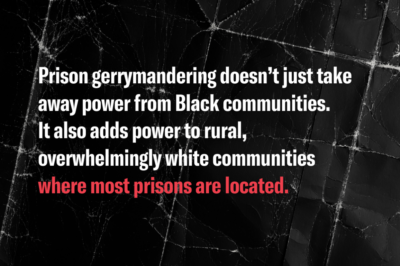In Georgia Case, Supreme Court Allows States Some Leeway in Redistricting Areas With Large Minority Populations
FOR IMMEDIATE RELEASE
ATLANTA–The American Civil Liberties Union today welcomed the Supreme Court’s decision in Georgia v. Ashcroft-a case involving the state’s legislative redistricting plan-but expressed some disappointment with the Court’s reading of a federal law which may hinder minority voters seeking to elect a candidate of their own race.
“”The danger in the Court’s opinion is that it may allow states to turn African American and other minority voters into second-class voters, who can influence the election of white candidates but cannot elect candidates of their own race,”” said Laughlin McDonald, director of the ACLU’s Voting Rights Project, which submitted a friend-of-the-court brief in this case on behalf of a coalition of civil rights groups in Georgia.
The ACLU found problematic the Court’s ruling that federal officials, aside from considering the impact of boundary changes on the ability of minorities to elect candidates of their choice, must also take into account whether a redistricting plan creates “”influence districts””-districts where minority voters may not be able to elect a candidate of choice but can play a substantial, if not decisive, role in the electoral process.
However, the ACLU applauded the Court’s ruling that minorities may intervene in cases filed to determine the legality of political boundaries, as well as the Court’s rejection of the Georgia’s argument that a standard known as “”retrogression,”” which is used for approving boundary changes, should be abandoned.
At issue in Georgia v. Ashcroft was Section 5 of the Voting Rights Act, which requires certain states that have had a history of discriminatory voting practices and low levels of voter participation to get federal approval, or “”preclearance,”” of their new voting laws or practices before they can be implemented.
Preclearance can only be granted by the U.S. District Court for the District of Columbia in a lawsuit, or by the U.S. Attorney General in an administrative submission. The standard for granting preclearance has been one of “”retrogression””-a standard that considers whether a proposed change makes minorities “”worse off”” or diminishes their ability to elect candidates of their choice.
In its ruling today, the Court said that a lower court should also consider whether a new plan adds or subtracts “”influence districts”” and whether a plan achieves “”greater overall representation of a minority group by increasing the number of representatives sympathetic to the interest of minority voters.””
Stay Informed
Every month, you'll receive regular roundups of the most important civil rights and civil liberties developments. Remember: a well-informed citizenry is the best defense against tyranny.



